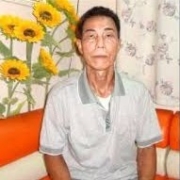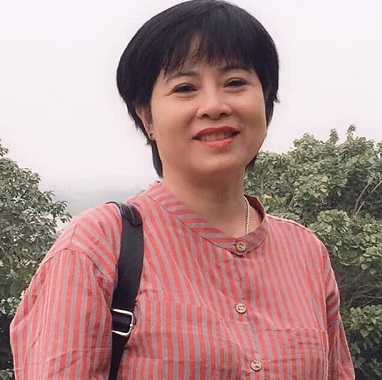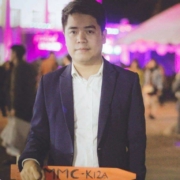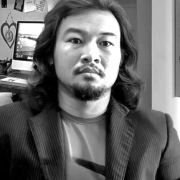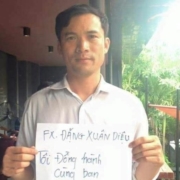Project88 Vietnam Newsletter No. 44/2024 – Dec. 19-29
Greetings from Project88. We bring you news, analysis, and actions regarding human rights and civil society in Vietnam from Dec. 19-29.
Climate leader Hoang Thi Minh Hong arrived in the US on Christmas Eve seeking asylum. On Christmas, Decree 147 went into effect, furthering tightening internet restrictions in Vietnam. Just a day prior, it was announced that Vietnam will host the signing of the UN Convention on Cybercrime, which, among other priorities, is in part designed to “safeguard human rights online.”
This week, Project88 published the official court decision from the June 2023 Dak Lak case, in which 98 people from ethnic minority groups were tried and convicted of terrorism for their alleged involvement in an attack on government offices and police stations that left nine people dead. Y Quynh Bdap, who Vietnam claims was one of the leaders of the attacks– despite him being in Thailand at the time, faces imminent extradition to Vietnam. One of the lawyers representing Bdap told Project88 that if no country comes forward to offer him asylum within the next month, then he will almost certainly be extradited.
In other news, a land petitioner was sentenced to 18 months’ imprisonment for “abusing democratic freedoms.” Lawyer Tran Dinh Trien faces trial on January 9 under the same charge. The group hunger strike at Prison No. 6 in Nghe An province has reportedly yielded some improvements in prison conditions. And RFA cites Project88’s work to explain why a raft of new policies in Vietnam has left civil society there paralyzed.
HUMAN RIGHTS & CIVIL SOCIETY

Updates on Y Quynh Bdap
On Dec. 25, a Thai municipal court found Ede activist Y Quynh Bdap guilty of entering Thailand illegally and staying in the country without permission. For the two convictions, one of Bdap’s lawyers told Project88 that he was fined a total of 8,000 Thai Baht ($433) and sentenced to eight months’ imprisonment, which was reduced to a 6,000 TBH fine and six months’ imprisonment. His prison sentence in this case was ultimately suspended, but Bdap will remain detained under his separate extradition proceedings.
One of the lawyers representing Bdap told Project88 that if no country comes forward to offer him asylum within the next month, then he will almost certainly be extradited to Vietnam. Bdap was convicted in absentia for “terrorism” and sentenced to 10 years in prison for his alleged role in the deadly 2023 attack in Dak Lak province. The Vietnamese government claimed that Bdap was one of the leaders of the attacks, even though he was in Thailand at the time. Hanoi made request to Thailand for his extradition in June 2024. Bdap had applied for asylum in Canada, but Ottawa stalled his application after Vietnam announced the terrorism charges against him.
To date, the Vietnamese government has made little information about the case against the alleged Dak Lak attackers public. It has not published the criminal investigation report, the indictment, the court decision, or details about Y Quynh Bdap’s alleged role in the attacks. Project88 recently obtained a copy of the court decision (Bản án số: 08/2024/HS-ST), which Hanoi submitted to the Thai court as part of the extradition hearing, and we are publishing it for the first time. Read our summary of the decision and the timeline of events that the decision alleges took place.
Political Persecution
Lawyer Nguyen Duy Binh has announced that his client, Tran Dinh Trien, will be tried on Jan. 9, 2025, by the People’s Court of Hanoi. Trien, himself a lawyer, was arrested in June 2024 and later charged with “abusing democratic freedoms” under Article 331. Before his arrest, Trien had made several posts on his Facebook page about the chief justice of Vietnam’s Supreme Court, Nguyen Hoa Binh. If convicted, Trien faces between 2-7 years in prison.
On Dec. 27, the People’s Court of Nam Dinh province convicted Dinh Thi Ngoc Anh of “abusing democratic freedoms” and sentenced her to 18 months in prison. Anh is accused of posting video clips of protesters demonstrating against the reclamation of land that the community has been using for aquaculture. The government wants to lease the land instead to a conglomerate to build several steel plants. However, residents of Con Xanh resisted due to fear of losing their livelihoods and the low rate of compensation for the land. Furthermore, they say the construction of the steel project would be in conflict with sustainability goals in the community.
On Dec. 17, Binh Thuan provicial police charged a man named Nguyen Thanh Huy (b. 1966) with “abusing democratic freedoms” based on Article 331. Huy is accused of using Facebook to post disinformation to discredit the People’s Army, party leaders etc. Huy was not detained but is prohibited from leaving Duc Linh county, where he lives.

Hoang Thi Minh Hong (R) after her release from prison in September
Environmental activist and former political prisoner Hoang Thi Minh Hong arrived in the US on Dec. 24 with her family and has asked for asylum. “I want to continue my environmental and climate work and I found it very difficult to carry out my plans in Vietnam,” Hong told RFA. “I chose to move to the U.S. so I can do the work I love and make positive contributions to society, but in a safer place, and with more opportunities and support.” Following a concerted advocacy campaign from Project88 and others, Hoang Thi Minh Hong and Tran Huynh Duy Thuc were both released early from prison on Sept. 20., synchronized with Secretary To Lam’s U.S. visit. Hong was sentenced to three years in prison in September 2023. She was the fifth climate activist to be jailed on false charges of tax evasion since 2021 in Vietnam.

Pham Thanh Nghien
Former political prisoner Pham Thanh Nghien, who now lives in the US, accepted the 2024 Human Rights Awards given by Vietnam Human Rights Network on behalf of its three winners, none of whom could attend: Dang Dang Phuoc, Bui Van Thuan and Do Nam Trung. The three men are serving a combined total of almost 30 years in prison, Nghien said during the acceptance speech, pointing to three empty chairs on stage. She noted that in the 22-year history of this award, none of its recipients were able to attend the ceremony due to their being in prison.
Soon after Nghien’s appearance at the award ceremony, she received a call from her family in Vietnam telling her that the police in Hai Phong visited her mother’s house on Christmas Eve and interrogated her and her sister about Nghien’s activities in the US. On her Facebook page, Nghien said this was the third time her family was subjected to this type of harassment, which she considers transnational repression, with the intent to silence activists even after they’ve left the country.
Prison Conditions

Dang Dinh Bach
After her visit with Dang Dinh Bach on Dec. 14 , Bach’s wife Tran Phuong Thao reported some good news as a result of the hunger strike Bach and others staged at Prison No. 6 in Nghe An in October. The “tiger cage” cell is now opened twice a day (6:00-10:30 and 13:15-17:30) for prisoners to exercise and breathe fresh air. Every Friday morning, Bach can join other political prisoners in Group A for a 90-minute meeting with the warden, and every Sunday, Bach can go to the larger common yard twice to socialize. However, Thao said she will file a new complaint about “writing utensils being taken away from Bach from 17:30 to 06:00 every night,” alleging it’s unlawful and arbitrary.
Le Trong Hung‘s visually-impaired wife, Do Le Na, was able to talk to her husband on Dec. 16 for the first time in two months. Hung reported that health wise, he has mostly recovered from the 30-day hunger strike he and several other political prisoners in Section K2 staged at Prison No. 6. Due to the high costs of traveling, Na said she couldn’t afford to travel to Nghe An to see Hung for at least another two months.
Truong Minh Duc‘s wife, Nguyen Kim Thanh, was able to talk to him for only 10 minutes on Dec. 16. Duc is also held at Prison No. 6 in Nghe An in north central Vietnam, where he says the cold weather is making his heart problem and blood pressure worse. Like Do Le Na, Thanh said that due to economic hardships, she simply can’t afford to fly to Nghe An to visit her husband until Tet.
VIETNAM IN THE WORLD
Vietnam PM eyes expansion of defense cooperation, U.S. offers to play role. Reuters; 2024-12-19. Vietnam wants to expand its international defence cooperation to build trust and prevent wars, its prime minister said on Thursday, and the United States said it was hopeful its defence industry could play a key role. In remarks to open Vietnam’s second international arms fair, Prime Minister Pham Minh Chinh said the expo was “a message of peace, cooperation and development”. The arms fair, which will run until Sunday, is being held at Gia Lam Airport in Hanoi, with nearly 250 exhibitors from dozens of countries, including the United States, China, Russia, Britain, Iran and Israel.
EU officials fight human-smuggling from Vietnam. DW; 2024-12-22. People-smuggling from Vietnam to the European Union has emerged as a focus issue in recent years. Authorities have cracked down on trafficking rings, but victims often remain silent.
ADDITIONAL NEWS AND ANALYSIS
In Vietnam, crackdowns and a secret order have paralyzed civil society. Radio Free Asia; 2024-12-20. NGOs have shuttered; staffers have faced arrest. Even the U.N. in Vietnam is allegedly struggling amid a government clampdown. A series of oppressive rules, many of which are kept hidden, have provided the foundation for these efforts as the Communist Party seeks to tighten its grip on power. One, and arguably the most draconian, of these is Directive 24, which was issued in July 2023 and casts all foreign cooperation as a national security threat amid the country’s increasing globalization. The secret directive, which was obtained by Project 88 earlier this year and has never been released by the government, details opposition to free expression, international aid, unions, and even foreign travel. The impact, say experts, is an effective criminalization of activism.
Critics decry Vietnam’s ‘draconian’ new internet law. The Guardian; 2024-12-23. Social media users in Vietnam on platforms including Facebook and TikTok will need to verify their identities as part of strict new internet regulations that critics say further undermine freedom of expression in the communist country. Decree 147, which comes into force on Christmas Day, will compel tech companies operating in Vietnam to store user data, provide it to authorities on request, and remove content the government regards as “illegal” within 24 hours.
Sweeping Vietnam internet law comes into force. AFP; 2024-12-24. “Decree 147 will be used to publicly suppress those with different viewpoints,” said activist Dang Thi Hue, who writes about politics and social issues on her Facebook account, which has 28,000 followers. The decree was “the latest sign of infringement of basic freedoms… with a vague line between what is legal and what is not,” said former political prisoner Le Anh Hung.
Vietnam Court Sentences 27 To Death For Drug Trafficking: State Media. AFP; 2024-12-27. Communist Vietnam has some of the toughest drug laws in the world, and is notoriously secretive about its executions. There is no indication when the executions would be carried out. Vietnamese courts routinely hand out death sentences for drug convictions, and the country is a leading executioner globally, according to Amnesty International.
Vietnam says administration reform will not impact project approvals. Reuters; 2024-12-20. Vietnam’s government said on Friday that plans to significantly overhaul its administration will not affect project approvals amid investor concern it could lead to delays in the coming months. The Southeast Asian country, a regional industrial hub, is planning its boldest bureaucratic reform in decades, which in its current proposals would involve cuts to multiple state bodies, including the abolition of five ministries, four government agencies and five state TV channels.
Internet crackdown shrinks already constrained room for activism in Vietnam. Mongabay; 2024-12-24. Social network users must also verify their accounts with local phone numbers or IDs, making it “impossible to remain anonymous on social media to comment on sensitive political issues,” an activist says. The new online restrictions follow a similar real-world tightening of civic space, with nonprofits required to legally register, and public gatherings also constrained.
© 2024 The 88 Project


